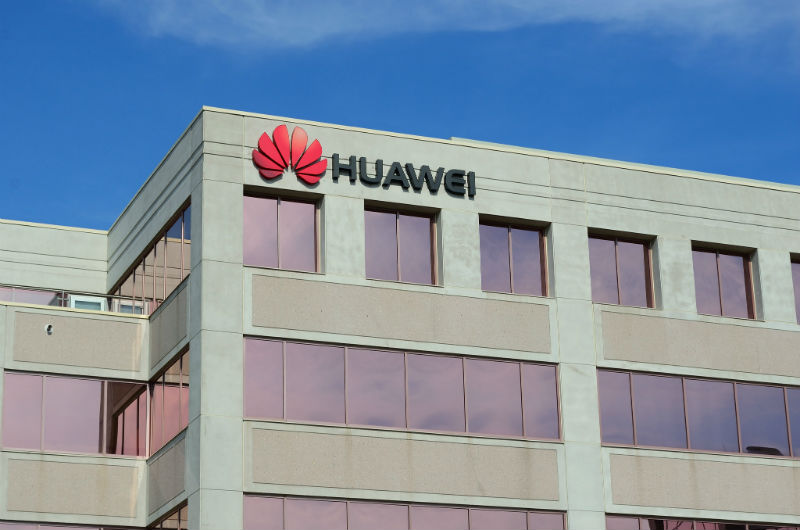Analysis: how problems with the US authorities will affect Huawei and IT business

One of the main news of the technological world in May-June was the confrontation between the Chinese manufacturer Huawei and the US authorities. The administration of the American president included the company on the black list of organizations that pose a threat to the country's national security.
As a result, Huawei has come under unprecedented pressure, and the questions about the future of the company, and especially the direction of production of smartphones, are now raising. Today we will talk about current problems and possible consequences of this confrontation.
Huawei's problems: loss of partnerships and a possible $ 30 billion loss
After the announcement of the inclusion of Huawei in the black list, serious problems began:
- Google has announced that it will deprive the company of access to future Android updates.
- The processor manufacturer ARM has curtailed all joint projects with the company.
- A large number of retail chains around the world announced that they would stop selling Huawei smartphones.
- The company's membership in the Wi-Fi Alliance and SD Association was suspended. This means that Huawei will not be able to influence the development of Wi-Fi and SD technologies.
- The two largest UK mobile networks, EE and Vodafone, have announced the exclusion of the company from a pilot project to launch 5G networks.
All these companies, even those that are not located in the United States, were frightened of American sanctions.
According to Huawei CEO Ren Zhengfei, he said that between May 17 and June 16, smartphone sales fell 40% from the previous 30-day period. Possible losses from the ban by the US authorities, Zhenfey estimated at $ 30 billion.
What will Huawei do and how will it affect the market as a whole?
If the situation does not change, and Huawei will be deprived of the opportunity to continue partnerships with Google, ARM and other companies, it will not be easy.
If the company wants to continue to use Android, then this can only be done using the Android Open Source Platform (AOSP). This is a free system that can be used by any company, but they are not given access to the Google Play Store. This means that devices will not have applications such as YouTube, Google Maps and Chrome - these are Google products, and the company is not obligated to provide them to everyone.
Without access to the Play Store, Huawei will have to negotiate directly with the developers of popular applications, convincing them to create versions of their products for the company's new OS. Today, this is exactly what Amazon does with its Fire OS - it is also based on AOSP, it has its own app store. Thus, Amazon controls the system on which the Fire tablets and Echo smart speakers work, but there are several times fewer applications than the Play Store.
Huawei announced that it was developing its alternative to Android a few years ago - the project was called HongMeng OS (or, possibly, Ark OS). According to rumors, the product may be ready by the end of 2019 or the beginning of 2020. The OS will work in mobile phones, computers, tablets, televisions, smart wearable gadgets and cars.
The company filed patent applications for the mobile operating system, so it seems that Huawei has seriously gathered to find an alternative to Android.
The company also works in partnership with new suppliers of electronic components. So if ARM decided to curtail any cooperation, then Micron was able to find loopholes that allow it to resume deliveries of Huawei.
Future confrontation with the USA
Huawei is a Chinese company, and the authorities of this country can also toughly respond to sanctions against it. So the press is discussing an option in which reciprocal restrictions will be imposed on Apple. The founder of Huawei himself said that he hopes that this will not happen.
At the same time, the size of Huawei - and in 2019 the company took the second place in the market of smartphone manufacturers, do not allow you to immediately abandon any cooperation with it.
In particular, therefore, at the end of May, US authorities granted the company a temporary license to work with American companies. It will be valid until mid-August. And by this moment, perhaps a trade agreement between China and the United States will be concluded.
President Trump said that “if we make a deal, I can imagine that Huawei will be in one form or another part of it.”
At the end of this week, the G20 summit will be held in the Japanese city of Osaka, and US officials said a trade agreement could be concluded there. So US Treasury Secretary Stephen Mnuchin said that the United States and China have almost reached an agreement on a trade deal, going 90% of the way. According to media and analysts, the US is ready to suspend duties on Chinese goods in the amount of $ 300 billion.
conclusions
At the moment, the story of the confrontation between the US authorities and Huawei is not over, but some conclusions based on it can already be made:
- Global politics can affect the business of multinational companies - now corporations will have to more deeply analyze the processes taking place in the world in order to calculate possible risks.
- Nobody needs problems - in the Huawei case, even the retail chains in the UK and Japan, which were not connected with the United States at all, chose to abandon the sales of the Chinese company's smartphones “just in case”. IT companies should not wait for support in such situations.
- There should always be a plan B - Amazon's approach with its Fire OS in such situations is a rescue tool. Huawei realized this too late and lost time; other companies will analyze this fact.
